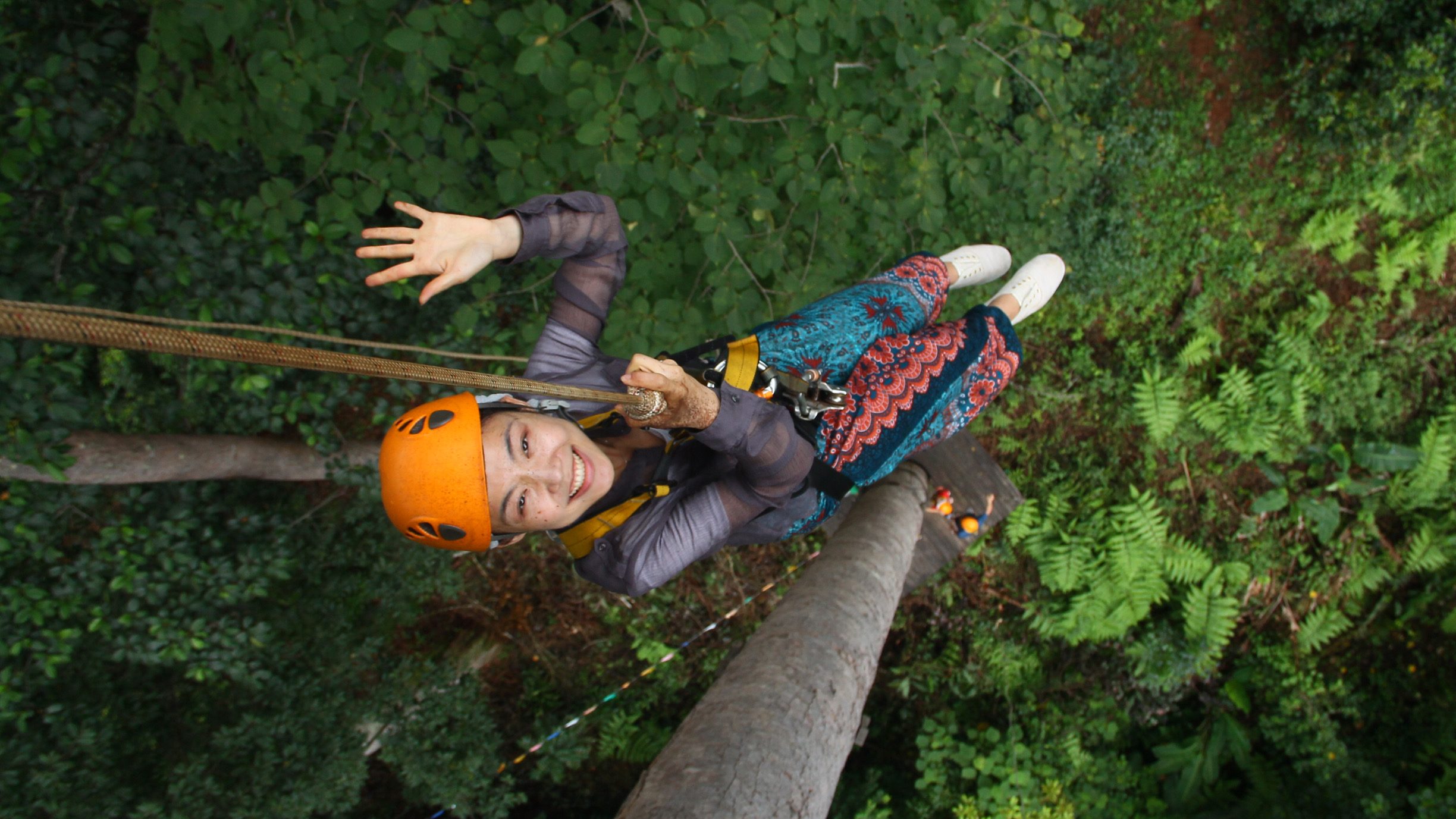Researcher Spotlight – Haofan Li

2019-20 Global Change Fellow
PhD Student, Department of Civil, Construction, and Environmental Engineering
Advisor: Dr. Fernando Garcia Menendez
Every year the Southeast Climate Adaptation Science Center funds a multi-disciplinary cohort of Global Change Fellows representing colleges across NC State University. Here are some highlights about 2019-20 Fellow, Haofan Li, and the applied research she’s conducting.
About You
What do you study?
My current study incorporates climate projection model outputs and focuses on studying climate change impacts on air quality, as well as major sources of uncertainty in the climate and air quality projections. The climate prediction model I am looking at is the Community Earth System Model-Large Ensemble Model (CESM-LE), which is a fully coupled numerical simulation of the entire earth system with the special ability of capturing the natural climate variability. My goal is to provide scientific support for climate change adaptation strategies and to inform policymaking on climate change- and air quality-related issues.
What (or who) influenced you to go into this field of study?
Growing up in Tianjin, China, which is a lovely coastal city but also one of the cities with the worst air quality in the country, I was always aware of how the sky above me was never blue and curious about how poor air quality in China would damage public health. With that curiosity and a sense of responsibility to fix the air problem in my country, I chose to major in environmental engineering when I came to the states for my undergraduate education and decided to focus on air quality specifically for my master’s and PhD studies.
What do you think is the most pressing issue related to global change?
To me, the most pressing issue is to raise public awareness of climate change and to formulate policies that can mitigate global change.
What is your dream job?
My dream career is to be able to combine climate and air quality models together to better inform environmental policymaking. I would specifically pursue ways to match my modeling experiences with the governmental and economic structures of China, so hopefully one day I can contribute to cleaner air in my home country.
About Your Research

What results are you finding?
Global and regional climate and meteorology affect air quality in many ways. For example, the change in temperature, precipitation, cloud coverage, solar radiation, wind speed, and planetary boundary layer height can all have significant impacts on air pollutants formation and transportation. There are numerous models that are trying to predict the changing climate, while others are trying to predict the change in air pollution concentrations due to changes in emissions and in meteorology; however, the question remaining unanswered is how the uncertainties and climate natural variability can impact the climate and air quality trajectories.
Who will benefit from your research?
My research aims to study climate change impacts on air quality, as well as answering the questions of how climate natural variability can impact the climate and air quality trajectories. Hopefully, other climate and air quality modeler and researchers will find the value of my study results. The ultimate goal of my research is to inform air quality policymaking; therefore, I do hope that my work can be helpful to environmental policy makers.
How would you describe your research to a 3rd grader?
If describing my research to a 3rd grader, I would say that I am using mathematical models as a tool to study how climate change can impact air quality and therefore impact public health.
About Your Global Change Fellows Experience
How do you expect the SE CASC Global Change Fellows Program to impact you and your work?
The SE CASC Global Change Fellows Program has introduced many other researchers and climate enthusiasts to my life who are studying different aspects of climate change science. Together, we have gotten a deeper understanding of how the changing climate is impacting mother earth and our day-to-day life. The new perspectives that the SE CASC has brought to me has extensive impacts on me and on how I tailor my research going forward.
What has been the most rewarding part of being a SE CASC Global Change Fellow?
My favorite part of being a SE CASC Global Change Fellow has been the one-week field intensive trip to the Great Smoky Mountains at the beginning of the academic year. During that time, I got to know the other fellows, and we were able to communicate with local environmental managers and scientists. It was such a constructive and memorable experience.
